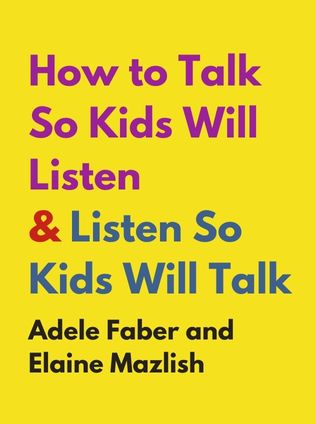
How to Talk So Kids Will Listen & Listen So Kids Will Talk
By Adele Faber and Elaine Mazlish
Published 01/1980
About the Author
Adele Faber and Elaine Mazlish, the authors of "How to Talk So Kids Will Listen & Listen So Kids Will Talk," are renowned experts in the field of parenting and communication. Their journey into understanding and improving parent-child communication began with their own experiences as mothers. Faber, who holds a master’s degree in education from NYU, spent eight years teaching in New York City high schools. Meanwhile, Mazlish was a director of children’s programs and deeply involved in nurturing young minds. Both were profoundly influenced by their studies with child psychologist Dr. Haim Ginott, whose emphasis on understanding and accepting children's feelings formed the cornerstone of their approach.
Faber and Mazlish's first book, "Liberated Parents/Liberated Children," published in 1974, laid the groundwork for their subsequent success. However, it was their 1980 book "How to Talk So Kids Will Listen & Listen So Kids Will Talk" that propelled them to international acclaim. The book, which emerged from the authors' workshops on effective communication, resonated deeply with parents who were seeking alternatives to the authoritarian parenting methods prevalent at the time. Their work has since become a seminal text in the parenting genre, inspiring a series of follow-up books and a PBS series, and earning them a lasting place in the pantheon of parenting experts.
Both authors continued to expand on their ideas in subsequent works, including "Siblings Without Rivalry," a #1 New York Times bestseller, and "How To Talk So Teens Will Listen & Listen So Teens Will Talk." Their books have been praised for their practical advice, empathetic approach, and their ability to empower parents and children alike. Even decades after their initial publications, their work remains a vital resource for parents seeking to build healthier, more communicative relationships with their children.
Main Idea
The central theme of "How to Talk So Kids Will Listen & Listen So Kids Will Talk" revolves around fostering a communication style that nurtures empathy, understanding, and cooperation between parents and their children. Faber and Mazlish argue that traditional parenting methods, which often rely on strict discipline and authority, are less effective and can be damaging to the parent-child relationship. Instead, they advocate for a more compassionate approach, where children are treated as competent individuals capable of making decisions and managing their emotions.
The authors emphasize the importance of parents learning to express their own feelings without blaming or criticizing their children. This, in turn, teaches children to express their own emotions in a healthy and constructive manner. The book is structured around practical strategies for dealing with common parenting challenges, such as how to deliver praise that empowers rather than diminishes, how to respond to a child’s negative emotions, how to set limits without resorting to punishment, and how to foster a child’s autonomy and self-discipline.
Table of Contents
- Introduction
- How to Deliver Empowering Praise
- How to Respond to Your Child’s Negative Feelings
- How to Encourage Cooperation and Independence
- How to Challenge Preconceived Ideas About Your Children
- How to Set Limits and Encourage Desired Behavior Without Punishment
- Conclusion
How to Deliver Empowering Praise
One of the foundational principles of Faber and Mazlish’s approach is the concept of empowering praise. Praise, when used correctly, can be a powerful tool for reinforcing positive behavior and boosting a child's self-esteem. However, the authors caution against the use of evaluative praise, which is often vague and focuses on the parent’s judgment rather than the child’s effort or achievement. For example, telling a child, "Good job!" is less effective than describing specifically what the child did well, such as, "I noticed how carefully you colored within the lines and used such bright colors."
Sign up for FREE and get access to 1,400+ books summaries.
You May Also Like
The Subtle Art of Not Giving a F*ck
A Counterintuitive Approach to Living a Good Life
By Mark MansonHow To Win Friends and Influence People
The All-Time Classic Manual Of People Skills
By Dale CarnegieFreakonomics
A Rogue Economist Explores the Hidden Side of Everything
By Steven D. Levitt and Stephen J. DubnerQuiet: The Power of Introverts
The Power of Introverts in a World That Can't Stop Talking
By Susan CainIf You Tell
A True Story of Murder, Family Secrets, and the Unbreakable Bond of Sisterhood
By Gregg Olsen



















